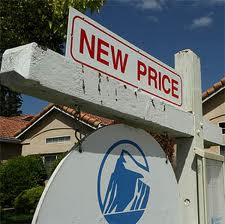 Goldman Sachs CEO Lloyd Blankfein made real estate news headlines last December by practicing what he preached. In September 2012, the 58-year old executive spoke at an event in Canada about real estate being a good hedge against global deflation. About three months later he closed on a handsome seven-bedroom estate in the Hamptons for an astonishing $32.5 million. The purchase price of Blankfein’s home is indicative of the bullish real estate market conditions in the exclusive New York region of the Hamptons. A recent report on CNBC illustrated the situation in the Hamptons, where the housing market has gone well beyond recovery; it has actually appreciated more than its peak before the crash. Soaring Prices In some of the Hamptons, home prices have doubled since 2007. It is not unusual for a real estate closing to be worth more than $2 million in communities such as South Fork and Bridgehampton, Blankfein’s new neighborhood. According to real estate transaction data from the last quarter of 2012, more than 90 closings in the area were for properties valued at $2.5 million and higher. Like other luxury housing markets across the United States, neighborhoods in the Hamptons were hit pretty hard after 2008. By 2010, however, pricing and activity had already recovered. By the time the final quarter of 2012 rolled around, there were no more bargains to be found in the Hamptons. The higher prices have not scared away investors and house hunters; local real estate agents are keeping busy. Home prices in the Hamptons are soaring to the point that Blankfein’s mansion is not even the most expensive. That would be another Bridgehampton estate that is priced at $43.5 million. High Demand, Low Supply The neighborhoods of the Hamptons are not impervious to the inventory woes that are troubling many other markets across the country. This lack of inventory is to the advantage of sellers in the area since it helps to lift up prices. Real estate agents in the area don’t have to worry about their seller clients, but they are concerned that low housing supply will push listing prices right into a localized market bubble.
Goldman Sachs CEO Lloyd Blankfein made real estate news headlines last December by practicing what he preached. In September 2012, the 58-year old executive spoke at an event in Canada about real estate being a good hedge against global deflation. About three months later he closed on a handsome seven-bedroom estate in the Hamptons for an astonishing $32.5 million. The purchase price of Blankfein’s home is indicative of the bullish real estate market conditions in the exclusive New York region of the Hamptons. A recent report on CNBC illustrated the situation in the Hamptons, where the housing market has gone well beyond recovery; it has actually appreciated more than its peak before the crash. Soaring Prices In some of the Hamptons, home prices have doubled since 2007. It is not unusual for a real estate closing to be worth more than $2 million in communities such as South Fork and Bridgehampton, Blankfein’s new neighborhood. According to real estate transaction data from the last quarter of 2012, more than 90 closings in the area were for properties valued at $2.5 million and higher. Like other luxury housing markets across the United States, neighborhoods in the Hamptons were hit pretty hard after 2008. By 2010, however, pricing and activity had already recovered. By the time the final quarter of 2012 rolled around, there were no more bargains to be found in the Hamptons. The higher prices have not scared away investors and house hunters; local real estate agents are keeping busy. Home prices in the Hamptons are soaring to the point that Blankfein’s mansion is not even the most expensive. That would be another Bridgehampton estate that is priced at $43.5 million. High Demand, Low Supply The neighborhoods of the Hamptons are not impervious to the inventory woes that are troubling many other markets across the country. This lack of inventory is to the advantage of sellers in the area since it helps to lift up prices. Real estate agents in the area don’t have to worry about their seller clients, but they are concerned that low housing supply will push listing prices right into a localized market bubble.



